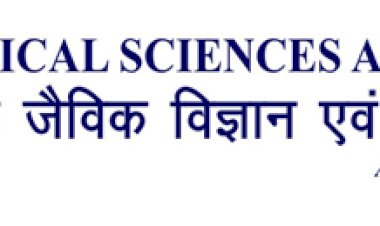Role of Regulatory Affairs in Marketing Pharmaceutical Products
Importance of regulatory affairs

Role of Regulatory Affairs in Marketing Pharmaceutical Products
Pharmaceutical Corporation is required by the Food and Drug Administration (FDA) to develop and provide all the information deemed essential to evaluate a specific medication, medicine, biologic, or device with respect to two potential safety and efficacy. The agency uses all of this data to determine whether the product belongs on the market and, if so, how it should be promoted and sold. Government affairs may be a profession at various times in regulated industries like banking, energy, pharmaceuticals, and medical devices. Regulatory affairs are also known by the acronym (RA). Because they are related to or concern the healthcare industry, regulatory affairs have extremely specific meanings. Pharmaceuticals, medical equipment, biological products, and functional foods are all included. The pharmaceutical business and drug regulatory bodies worldwide are connected through regulatory affairs. Regulatory affairs are primarily concerned with registering pharmaceutical items in the relevant nations prior to their marketing. A new medicine variety can cost several million rupees or dollars, and any error has a greater negative impact on the status of the company. Regulations for drugs are necessary to guarantee their quality, safety, and efficacy because medicines play such a significant part in human life. The only person who has complete responsibility for keeping products in conformity and preserving all documents pertaining to the healthcare system is the regulatory affairs specialist. Making sure that the patient has access to accurate drug information, including labelling, is one of the key responsibilities of regulatory specialists. A recall of the product and subsequent financial loss of several millions of dollars can result from even a minor regulatory error. A crucial part of providing advice on the label (realistic prescribing information) for the proposed product is played by the RA professional. In order to ensure that the department also prepares the core prescribing information that serves as the foundation for worldwide clearance and later serves as the marketing platform, the RA expert evaluates all material from a regulatory viewpoint. Clinical trial applications, regulatory submissions for new product components, and revisions to approved goods are all included in the RA records or documentation.
What are regulatory affairs?
Regulatory affairs can be summed up as a replacement profession that arose from the need for the government to safeguard the public's health by regulating the safety and effectiveness of drug products in a variety of industries, including pharmaceuticals, veterinary medicines, medical devices, pesticides, agrochemicals, cosmetics, and complementary and alternative medicines. The interface between a pharmaceutical business and regulatory bodies around the world is what is referred to as regulatory affairs in the pharmaceutical sector. A crucial component of pharmaceutical businesses' organisational structures is the regulatory relations division. At the transitional stage between drug development, production, promotion, and clinical research, it coordinates internally. It serves as the primary link between the corporate world and, consequently, regulatory bodies. In another word RA is,
- An exciting and difficult profession
- Offers tactical and strategic guidance for product development.
- Aids in the commercial and scientific success of a company's development programmes.
- Protects public health by monitoring the efficacy, safety, and control of products.
- Role of Regulatory Affairs in the Pharmaceutical Sector.
Professionals in regulatory affairs offer R&D production, QA, and other departments intelligent guidance related to military research. Simply assist in the development of a product, which will be beneficial for the organization as a whole and an evolution theme both economically and scientifically. A new pharmaceutical product must be evaluated and implemented over a period of up to 15 years, and many problems may arise due to advancements in science and changing regulatory environments. Regulatory experts aids the business in avoiding problems brought on by irrelevant documentation, inappropriate scientific reasoning, or better record presentation.
- Product management involves regulatory affairs.
The primary responsibility of an R. A. professional extends far beyond the registration of pharmaceutical products; instead, they provide companies with strategic and technical advice beginning with the development of a drug product and continuing through the creation of marketing and post-marketing strategies. They provide guidance at all phases in terms of the technical and legal requirements, which helps businesses develop their products and promote them more quickly and for less money. For nations without national laws, the world Health advice from the World Health Organization.
- Regulatory affairs involvement in R&D.
The regulatory affairs team collaborates with marketing, R&D, and other departments to create innovative products that seize control of recently developed high-tech developments and regulatory advancements to reduce time to market. A modest decrease in time to market is balanced out by a significant increase in outcome and yield, along with new items that are expected to offer noteworthy results to the company's main business. A new product's development can be sped up while avoiding costly errors and time lags by enlisting modifiable clinical trial participants, giving up quick regulatory authority approval, and avoiding process dangers.
The significance of regulatory affairs (RA)
The success of a product and, by extension, the firm depends on how quickly it can enter the market in today's cutthroat environment. The proper handling of the company's regulatory affairs activities is consequently crucial to its financial health. Senior regulatory affairs experts are increasingly hired for boardroom positions due to the significance of the regulatory affairs activities, where they may advise on and further impact the strategic decisions of their organisations.

 Janhvi
Janhvi 



























